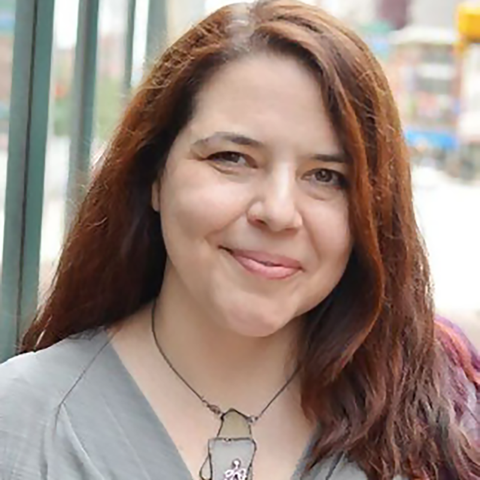Keynote: When Machine Learning Can't Replace the Human
This keynote is now available to view on InfoQ.com
Watch video with transcriptAbstract
In our modern era of digital cameras and automated imaging, hoards of data are piling up that can be used to solve a myriad of problems: but only if there is a way to categorise and tag the images. Machine Learning is making great strides, but despite all attempts to make it the hammer that bends all nails, there are still problems that require human vision. In this talk, we will look at the case of an asteroid - a 500m across rock named Bennu. While unimpressive in size, this orbiting rubble pile has posed an intimidating challenge to its mission team: How can a safe spot to get a sample (or 3) be found quickly on an object with half a million hazards (give or take). The answer? Use humans as part of the algorithm. This solution presents its own problems, ranging from griefers to slackers to ethical considerations, but this solution works. Come for the computer science, and stay for the astronomy, as we explore how creative software solutions let scientists explore our solar system.
What is the work that you're doing today?
I'm working to find ways to help us use technology to map other worlds. At this particular moment in time, computer vision isn't quite ready to mark the hazards our spacecraft face day today. I'm trying to figure out how to integrate in humans in my algorithm and do it in a way that's ethical and can, where possible, feed into training software to someday take over in the future.
What are your goals for the talk, what are you hoping that the audience might take away from listening to you?
If nothing else happens, I want people to stop automatically saying "why don't you just apply machine learning to that?" Because there are so many problems that machine learning still can't solve. It's so important for us to realize both the limits of our technology and the fact that we have other tools in our toolset. Let's remember to use that screwdriver for the screws and reserve the hammer for the nails.
One of the things that I'm really hoping to get into is how we have lots of niche problems that may only have a thousand images, a few hundred plots. For these particular datasets, we need to be able to dig through them and find the patterns, find the trends. The human mind is still the most powerful tool we have to do that. Where just like we sometimes use open source to solve our software limits while we need to use crowdsourcing to solve our computer vision limits.
What do you think is the next big disruption in software or technology?
One of the biggest issues facing so many problems right now from self-driving cars to the algorithms that suggest our next video on YouTube, the next TV show on Netflix, is figuring out how to deal with the gray areas, how to deal with the multiple possible solutions. When software starts to be able to figure out how to make ethical choices, we're going to start to be in the science fiction future we're not quite ready for. And we're getting really close.
It starts to become a question of how far are we from not being able to separate out our algorithms from our colleagues. When that happens, it's going to lead to a societal upheaval that will be awesome in terms of having robotic caretakers in places like Japan where there just aren't enough in that next generation, but also awful in the places where we do still have enough humans to fill a lower level workforce jobs. What do we do when we disrupt our entire economy while just solving our software issues.
